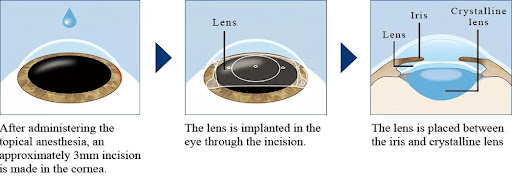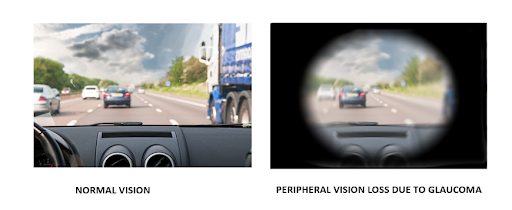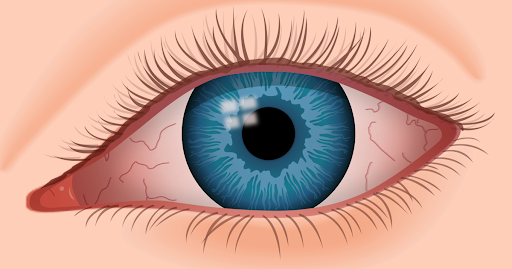A comprehensive eye exam is a thorough evaluation of your ocular health and visual acuity conducted by qualified optometrists. At Eyeonce Eye Clinic, we prioritize your vision well-being through meticulous assessments that go beyond standard vision tests.
One of the key aspects of our comprehensive eye exams is the emphasis on preventive eye care. We view the eyes not just as windows to the soul but as indicators of your overall health. Through regular eye check-ups with our esteemed ophthalmologists Dr. Paik Dong Won and Dr. Jung Sae Rom at Eyeonce, we aim to detect systemic conditions like diabetes and hypertension, contributing to your holistic well-being.
Comprehensive Eye Exam VS. Standard Vision Test
At Eyeonce Eye Clinic, we believe in providing our patients with a nuanced understanding of the difference between a comprehensive eye exam and a standard vision test. These two assessments serve distinct purposes, catering to various aspects of ocular health and visual acuity.
Comprehensive Eye Exam
- In-depth Ocular Assessment – Comprehensive eye exams at Eyeonce go beyond the surface, encompassing a thorough evaluation of ocular anatomy and health.
- Visual Acuity Examination – While assessing visual clarity, our expert optometrists consider factors like eye coordination, focusing ability, and peripheral vision.
- Detection of Eye Conditions – The primary focus is on early detection of eye conditions such as glaucoma and cataracts, ensuring prompt intervention and management.
- Systemic Health Indicators – Eyeonce Eye Clinic recognizes the eyes as windows to overall health. Comprehensive exams can reveal signs of systemic conditions like diabetes and hypertension.
- Tailored Preventive Care – The approach is proactive, emphasizing preventive eye care measures tailored to individual needs.
- Age-Related Adaptations – Comprehensive exams address age-related changes, offering specific solutions for conditions like presbyopia and adapting care to different life stages.
Standard Vision Test
- Basic Visual Clarity Check – Standard vision tests primarily focus on assessing visual acuity, measuring how well you can see objects at various distances.
- Prescription Determination – These tests are often geared toward determining the need for corrective lenses, such as glasses or contact lenses.
- Limited Scope – Standard vision tests may not delve into the detailed examination of ocular health or early detection of eye conditions.
- Quick Assessment – Typically, standard vision tests are quicker and may not include the comprehensive evaluation of various aspects of eye health.
- Less Emphasis on Preventive Measures – The scope may not extend to proactive measures for preventing potential eye issues or detecting systemic health indicators.
- Genetic Approach – Standard vision tests offer a more generic approach, often not addressing individualized needs or age-related changes.
At Eyeonce Eye Clinic, we advocate for the importance of both assessments depending on individual requirements. While standard vision tests are valuable for routine check-ups, comprehensive eye exams provide a more thorough understanding of ocular health, ensuring a holistic approach to vision care. Our commitment is to offer personalized and detailed eye care solutions tailored to your unique needs, promoting long-term vision health, and well-being.
Benefits of Comprehensive Eye Exam
Comprehensive eye exams are more than routine check-ups; they are a gateway to a multitude of benefits that extend beyond just ensuring clear vision. At Eyeonce Eye Clinic, we emphasize the holistic advantages of these thorough assessments, recognizing the eyes as crucial indicators of overall well-being. Here are the key benefits:
- Early Detection of Eye Conditions
- Systemic Health Indicators
- Tailored Preventive Care
- Individualized Solutions
- Adapting to Age-Related Changes
- Promoting Children’s Eye Health
- Holistic Approach to Digital Eye Strain
- Peace of Mind and Confidence
At Eyeonce Eye Clinic, we believe in the transformative power of comprehensive eye exams. Beyond ensuring clear vision, these assessments serve as a cornerstone for lifelong eye health, offering preventive care, early detection, and personalized solutions tailored to your unique needs.
During a Comprehensive Eye Exam
A comprehensive eye exam at Eyeonce Eye Clinic is a meticulous and personalized process designed to unveil the intricate details of your ocular health and vision. Our skilled ophthalmologists Dr. Paik Dong Won and Dr. Jung Sae Rom guide you through assessments, ensuring a thorough understanding of your eye’s well-being. Here is a step-by-step overview of what happens during a comprehensive exam:
- Welcome and Patient History – Your journey begins with a warm welcome from our Eyeonce team. We value your unique needs, so we start by gathering a comprehensive patient history. Understanding your medical history, lifestyle, and any specific concerns provides a foundation for tailored eye care.
- Visual Acuity Testing – The classic eye chart comes into play as we assess your visual acuity. This step measures how well you can see objects at various distances. Our optometrists use this information as a baseline for further assessments.
- Refraction Assessment – If needed, a refraction assessment determines your prescription for corrective lenses. This is crucial for addressing any refractive errors like nearsightedness or farsightedness. Eyeonce Eye Clinic ensures precise prescriptions for optimal visual clarity.
- Eye Muscle Function Evaluation – We examine the coordination of your eye muscles, assessing how well your eyes work together. This evaluation is vital for detecting issues like strabismus or amblyopia. Eyeonce Eye Clinic emphasizes the importance of proper eye muscle function for overall visual health.
- Peripheral Vision Testing – Peripheral vision is evaluated to ensure a complete understanding of your overall visual field. This step is crucial for detecting potential issues that may affect your side vision. Eyeonce aims to provide a comprehensive picture of your visual capabilities.
- Intraocular Pressure Measurement – Elevated intraocular pressure can be indicative of conditions like glaucoma. Our optometrists use specialized techniques to measure pressure within your eyes. This assessment is a proactive measure for early detection and management.
- Ocular Health Examination – Dilating eye drops may be administered to allow for a detailed examination of the internal structures of your eyes. Eyeonce uses this step to assess the health of your retina, optic nerve, and other crucial components.
- Discussion and Recommendations – Following the assessments, our optometrists engage in a detailed discussion. They share their findings, discuss any identified issues, and provide recommendations for further care or interventions. Eyeonce values transparent communication, ensuring you are informed and empowered regarding your eye health.
- Personalized Preventive Care – Based on the comprehensive assessment, Eyeonce Eye Clinic crafts a personalized plan for preventive eye care. Whether it is addressing early signs of conditions or recommending lifestyle adjustments, our goal is to promote long-term ocular health.
- Prescription Eyewear Guidance – If corrective lenses are prescribed, our team assists you in choosing suitable frames or contact lenses. Eyeonce offers a range of options, ensuring style meets functionality.
Your journey does not end with the exam. Eyeonce Eye Clinic emphasizes the importance of regular follow-ups to monitor any changes in your eye health. Learn more about Eyeonce by booking an appointment with us today!
Kinds of Tests in a Comprehensive Eye Exam
A comprehensive eye exam at Eyeonce encompasses a diverse range of tests, each designed to unveil specific aspects of your ocular health and visual acuity. Here are examples of some key tests conducted during a comprehensive eye exam:
- Visual Acuity Test
- Refraction Assessment – Corneal curvature, Corneal endothelial cell, Corneal topography, Corneal CT
- Eye Muscle Vision Testing
- Intraocular Pressure Measurement
- Slit-lamp Examination
- Dilation and Retinal Examination
- Dry-eye Keratograph
- Retinal Scan
- Visual Field Test
- Color Vision Test
- Cover Test
- Tonometry
- Optical Coherence Tomography (OCT)
- Pupil Response Test
These tests, conducted at Eyeonce during a comprehensive eye exam, collectively provide a thorough understanding of your eye health.
Frequently Asked Questions (FAQs)
It is recommended to have a comprehensive eye exam at least every two years for adults. However, individuals with certain risk factors or specific eye conditions may need more frequent exams
Yes. Comprehensive eye exams can reveal signs of systemic conditions such as diabetes, hypertension, and certain neurological disorders. The eyes act as windows to overall health, making regular eye check-ups essential for holistic well-being.
The duration of a comprehensive eye exam can vary, but on average, it takes approximately 30 to 60 minutes. The time may be influenced by factors such as the complexity of the exam, additional tests needed, and the discussions with the optometrists about your eye health.
Conclusion
In the journey through the intricacies of eye health, we have unveiled the profound significance of comprehensive eye exams. These assessments extend beyond the realm of vision clarity, becoming gateways to early detection, proactive preventive care, and personalized solutions. At Eyeonce Eye Clinic, our commitment is not just to your eyes but to your overall well-being, recognizing the eyes as vital indicators of systemic. Book an appointment with our eye care professionals today!



